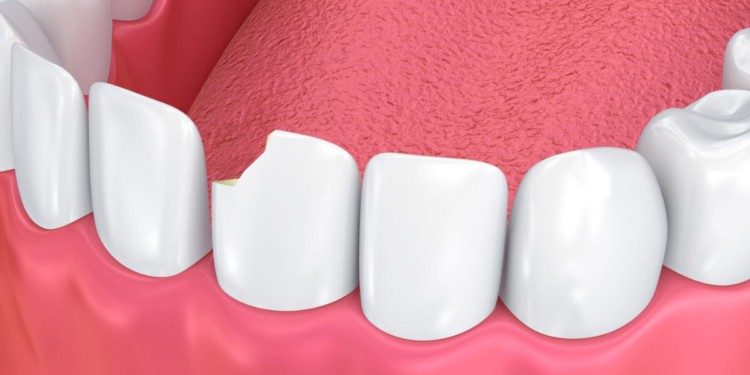Chipping a tooth is a common dental woe that can affect anyone, but some individuals find themselves more susceptible than others. If you’ve ever wondered, “Why do my teeth chip easily?” It’s crucial to explore the various factors contributing to this issue. In this article, we will delve into the ten key risk factors that may compromise your teeth’ strength and resilience and how understanding these factors can help safeguard your oral health.
Why Do My Teeth Chip Easily?
1. Tooth Decay: The Silent Culprit
One significant risk factor for easily chipped teeth is tooth decay, a process where bacteria erode tooth enamel. This occurs as bacteria form plaque on teeth, releasing acids after consuming sugars and carbohydrates. As the enamel layer weakens, teeth become more susceptible to damage. Even teeth repaired with white fillings can be more prone to cracks than untreated teeth.
2. Acid Wear: Beyond Plaque
Apart from plaque acids, other dietary acids like those found in fruit juices, carbonated drinks, and wine can contribute to tooth wear. Additionally, medical conditions such as acid reflux, heartburn, and morning sickness during pregnancy can expose teeth to harmful acids, increasing the risk of chipping.
3. Poor Nutrition: The Foundation of Healthy Teeth
Nutrition plays a key role in maintaining strong teeth. While certain foods contribute to decay, others, like dairy products and leafy greens, aid in building robust teeth. This is particularly vital for children, whose teeth are still developing, and adults should ensure they receive sufficient dietary calcium and vitamins to protect their teeth.
4. Misaligned Bite: A Source of Uneven Pressure
Orthodontic issues or uneven wear can lead to a misaligned bite, causing some teeth to bear more pressure than they are designed for. This imbalance increases the likelihood of chipping and cracking and may result in jaw problems such as TMJ disorders.
5. Teeth Grinding and Clenching: Bruxism
Involuntary teeth grinding and clenching, known as bruxism, can happen during the day or while sleeping. This habitual action can cause uneven wear on enamel, putting both teeth and jaws under unnecessary pressure and making them more prone to chips and cracks.
6. Sport Injuries: A Leading Cause
Participating in contact sports like rugby, soccer, and hockey increases the risk of dental injuries, including chipped teeth. Any activity involving a risk of impacts to the mouth or potential falls can elevate the chances of accidents leading to dental damage.
7. Occupational Risks: A Hidden Threat
Certain professions may predispose individuals to chipped teeth due to the inherent risk of dental injuries. Additionally, work-related stress can contribute to teeth grinding, amplifying the likelihood of dental damage.
8. Mouth Piercings: Aesthetic Choices with Risks
Piercings in the lip, cheek, or tongue may enhance one’s appearance but can also elevate the risk of chipping a tooth if struck in the mouth. Awareness of this risk is crucial for those with oral piercings.
9. Ageing: Natural Wear and Tear
The ageing process naturally contributes to the wearing down of enamel over time. How well you care for your teeth determines the level of wear and tear, but aging remains a factor that increases the susceptibility to chipped teeth.
10. Genetics: Inherited Vulnerabilities
While many risk factors for chipped teeth can be controlled, genetic factors play a role in determining tooth strength. Some individuals may inherently have weaker teeth, making them more prone to chipping.
Conclusion: Why Do My Teeth Chip Easily?
Understanding the reasons behind easily chipped teeth is the first step toward maintaining optimal oral health. Consulting with a dentist can provide valuable insights if you question why your teeth chip easily. You can take proactive measures to prevent dental damage by identifying and addressing these ten risk factors, ensuring a healthy and resilient smile for years.




